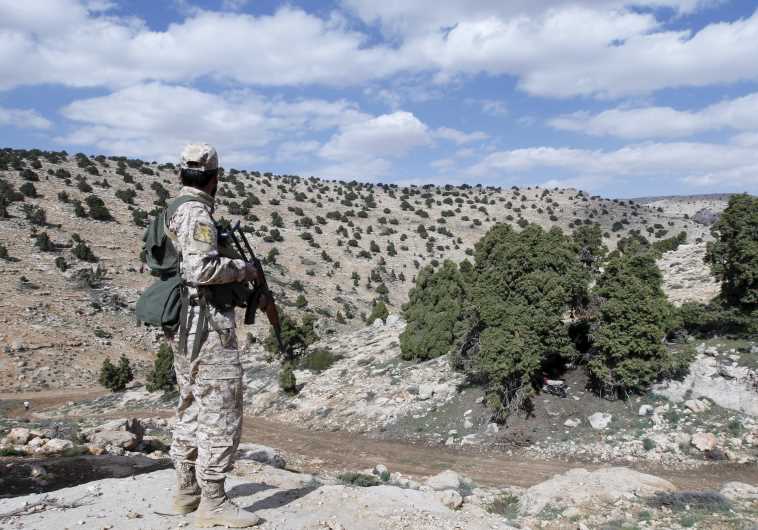ISIS asks Hezbollah, Syrian Army for withdrawal from Syria-Lebanon border
Both the Syrian army and Hezbollah are trying to remove ISIS from the western Qalamoun region on the Syrian-Lebanese border.
 A Lebanon Hezbollah fighter carries his weapon as he stands in Khashaat, in the Qalamoun regionUpdated:
A Lebanon Hezbollah fighter carries his weapon as he stands in Khashaat, in the Qalamoun regionUpdated: